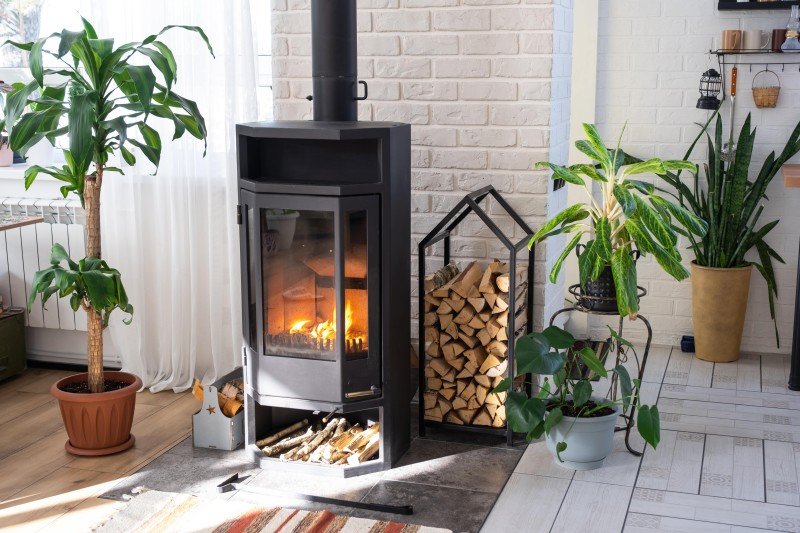The Best Fireplaces: A Comprehensive Guide for Homeowners
Fireplaces have actually long been a beloved feature in homes, providing both warmth and a welcoming atmosphere. They come in different styles, sizes, and fuel types, allowing homeowners to pick one that fits their personal visual and heating requirements. This post looks into the best fireplaces, highlighting crucial features and factors to consider to help you make an informed decision.
Types of Fireplaces
Understanding the different types of fireplaces is important in picking the very best alternative for your home. Below are the most typically used fireplaces:
Wood-Burning Fireplaces
- Benefits: Traditional appeal, natural atmosphere, and efficient heating.
- Disadvantages: Requires regular upkeep, ash disposal, and is subject to regional regulations relating to emissions.
Gas Fireplaces
- Advantages: Convenient, clean-burning, and simple to operate.
- Downsides: Requires a gas line, can be more expensive to install initially.
Electric Fireplaces
- Benefits: Easy installation, low upkeep, and the most safe alternative for homes with children or animals.
- Disadvantages: Lack the genuine feel of wood or gas flames, may not heat large areas efficiently.
Pellet Stoves
- Advantages: Eco-friendly, efficient, and offer a consistent heat output.
- Disadvantages: Requires electrical energy to run, and pellet supply can be restricted in some locations.
Ethanol Fireplaces
- Advantages: No chimney needed, portable, and ecologically friendly.
- Disadvantages: Generally less effective for heating.
A Comparison of Fireplace Types
| Type | Installation Cost | Running Cost | Heat Output | Maintenance | Ecological Impact |
|---|---|---|---|---|---|
| Wood-Burning | ₤ ₤ | ₤ | High | High | Moderate |
| Gas | ₤ ₤ ₤ | ₤ ₤ | Medium-High | Low | Moderate |
| Electric | ₤ | ₤ ₤ | Low | Very Low | Low |
| Pellet | ₤ ₤ | ₤ | Medium | Medium | Low |
| Ethanol | ₤ ₤ | ₤ ₤ ₤ | Low | Really Low | Very Low |
Top Considerations When Choosing a Fireplace
When you're in the marketplace for a brand-new fireplace, keep the following factors in mind to ensure you pick the best one for your home:
- Purpose and Functionality: What do you desire your fireplace to do? Is it for heating or visual appeals? This will guide your choice significantly.
- Space Availability: Measure the location where you desire to set up the fireplace. Ensure the chosen type fits without frustrating the area.
- Fuel Source: Assess the availability and expense of numerous fuel sources in your area to prevent unforeseen costs.
- Installation Complexity: Some fireplaces might require substantial changes to your existing home structure.
- Building Regulations and Regulations: Be mindful of local laws relating to ventilation, safety, and emissions, as these can affect your fireplace choice.
- Aesthetic Appeal: The style and style of a fireplace can act as a focal point or complement the existing decor, so pick one that boosts your home's total aesthetic.
Benefits of a Fireplace
Including a fireplace to your home pays for many benefits:
- Enhanced Aesthetic Appeal: A fireplace can elevate the decor of any room, producing a cozy and inviting environment.
- Increased Home Value: A well-installed fireplace can include significant value to your home, making it interesting prospective buyers.
- Energy Efficiency: Modern fireplaces, particularly gas and pellet ranges, can offer effective heating while minimizing energy expenses.
- Emergency Situation Heat Source: In cases of power outages, a wood or gas fireplace can act as a dependable heat source.
- Celebration Space: Fireplaces often end up being the focal point for gatherings, promoting heat and convenience throughout family or good friends' get-togethers.
Regularly Asked Questions (FAQs)
Q: How much does it cost to install a fireplace?A: Installation expenses can differ substantially based upon the kind of fireplace, structural requirements, and labor costs. Standard electric fireplaces might cost around ₤ 300, while custom-built wood or gas fireplaces can run from ₤ 3,000 to upwards of ₤ 10,000. Q: Are electric fireplaces safe?A: Yes, electric
fireplaces are generally safe.
They do not discharge carbon monoxide and have no open flames. They typically consist of security functions like automatic shut-off systems. Q: How frequently should I have my chimney cleaned?A: If you utilize a wood-burning fireplace, it's recommended to have your chimney cleaned a minimum of when a year
to prevent creosote buildup, which can cause chimney fires. Q: Can I set up a gas fireplace myself?A: It's not recommended to install a gas fireplace without expert help due to the complexities connected with gas
lines, ventilation, and security guidelines. Q: What are the best kinds of fuel for wood-burning fireplaces? Best Fireplace Online : The best fuel choices include well-seasoned hardwoods like oak, maple, or hickory, as they burn hotter and cleaner compared to softwoods. Selecting the very best fireplace for your home
involves thinking about numerous aspects, from aesthetics to work and security. Each type of fireplace has its special benefits and potential disadvantages.
Understanding these elements, in addition to your individual heating requirements and budget constraints, will direct you in making an informed decision. Eventually, a fireplace can provide not just heat but likewise a rich ambiance, changing your home into an inviting sanctuary.

